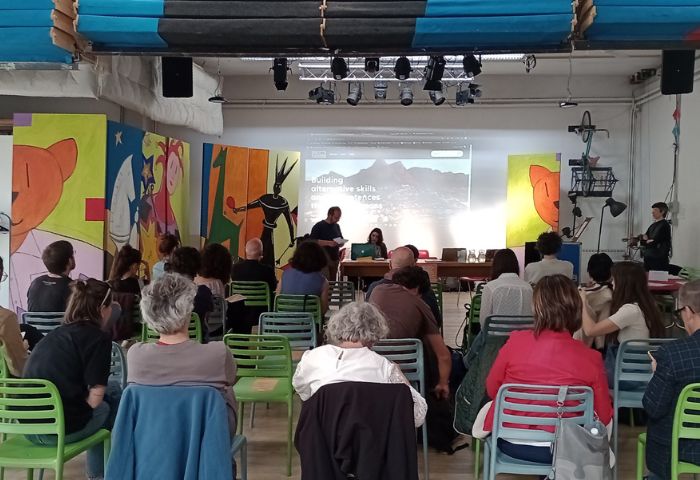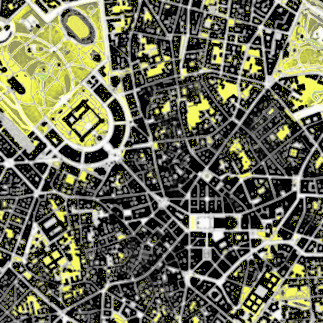Politics & Policies
European cities engage with Commons in varied ways, shaped by their unique political, cultural, and historical contexts. A common challenge, however, is gaining and maintaining recognition from local authorities. Sustaining Commons requires ongoing advocacy and careful navigation of politics, policy, and funding. As Commons challenge traditional governance based on privatization and individualism, they demand thoughtful and collaborative approaches.

When reclaiming or establishing commons in vacant spaces, engaging local authorities can be crucial for legitimacy and sustainability. This involves navigating legal frameworks to secure permissions or protections while advocating for the community’s right to co-create and manage shared spaces.
Collaborations with local authorities can be fraught with challenges, such as differing priorities or bureaucratic inertia. However, establishing clear objectives, shared governance structures and accountability mechanisms can make grassroots initiatives compatible with broader urban planning objectives. Best practices include participatory decision-making processes and adopting public agreements to ensure the commons' protection while respecting community autonomy.
Policymakers operate across various levels —local, regional, and national— each with distinct roles. Local officials manage zoning laws and urban planning policies; regional authorities may provide funding and broader strategic oversight; national policies can influence legal recognition of commons. Policymakers can advocate for inclusive urban strategies by creating legal frameworks, funding mechanisms, and technical support for commons initiatives.
A strategy to produce institutional engagement about commons is demonstrating their social, economic, and environmental value, by organizing workshops, public forums, and pilot projects that highlight tangible benefits. Establishing partnerships with advocacy groups and leveraging media can amplify the message. Policymakers can also be incentivized by aligning commons with their political agendas, such as sustainability goals or community development initiatives.
Funding for commons often depends on hybrid models, combining public funds, private donations, and community contributions. Policymakers can facilitate access to grants, subsidies, or participatory budgeting programs. Ensuring financial sustainability involves transparent accounting, collaborative fundraising, and exploring innovative models like circular economies or social enterprises within commons spaces.
The governance of commons requires navigating complex balances:
- Trust vs. Freedom of Action: Communities need enough autonomy to innovate but must also maintain transparency to build trust with authorities.
- Responsibility vs. Risk: Clear responsibilities and risk-sharing mechanisms (e.g., insurance policies) ensure long-term viability.
- Coordination vs. Community Empowerment: Centralized coordination can streamline efforts but should not overshadow grassroots leadership.
- Protection vs. Protectionism: Ensuring commons are shielded from privatization while avoiding exclusionary practices that limit their broader societal impact.
Commons often emerge through informal, community-driven initiatives, which may conflict with rigid regulatory frameworks. Bridging this gap involves advocating for policies that recognize and integrate informal governance models. Tools like temporary use permits, urban experimentation zones, or flexible zoning laws can legitimize informal commons without stifling their organic nature.





